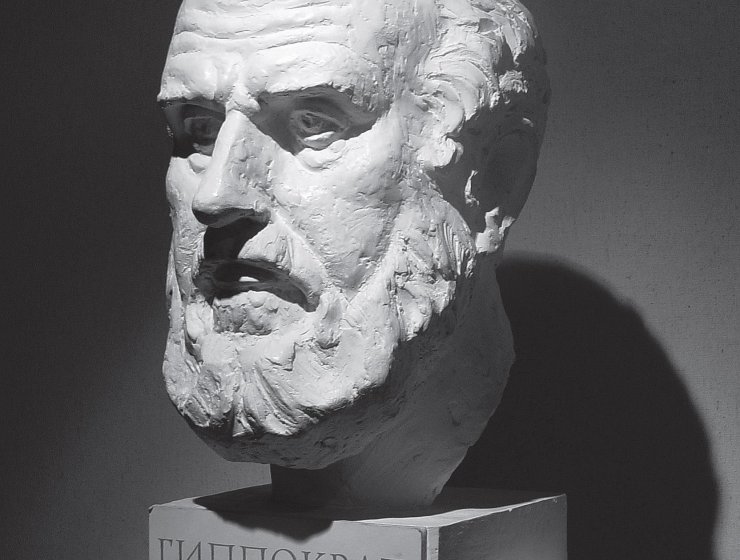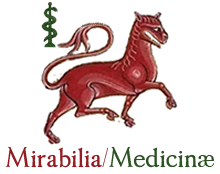
-Index-
Editorial: The Foundations of Bioethics
Hélio ANGOTTI NETO
Original title: Editorial: Os Fundamentos da Bioética
The Hippocratic Oath: a referential preview of contemporary Bioethics
José Benjamim GOMES
Original title: O Juramento de Hipócrates: uma antevisão referencial da Bioética contemporânea
This work shows the actuality of the Hippocratic Oath in contemporary days, especially in Bioethics. The great benefices and challenges imposed by the medical science and technology advancement cannot be underestimated. There is a great gap between a highly technic and pragmatic biomedicine and a true humanizing medicine. In the last decades, the risky human experimentation and the medical technology improvement increased even more the risks, the challenges and the conflicts that threat the great ethical values already historically consecrated. The Ethical Medics were reduced to the professional Code, and Deontology itself could not answer to moral conflicts and antagonisms between different philosophical traditions. Bioethics, as a philosophy of biomedical practice and investigation, actually is the space of such discussion, and has in the Hippocratic Oath the origin of its principles and issues. Among the ethical principles in the Oath, the sacredness of life appears as a compromise solemnly proclaimed, without any concession to abortion or euthanasia. Even if such questions are categorically portrayed in the Oath, they remain highly controversial in Bioethics, if we take into account the contemporary interpretation given to principles like autonomy and liberty of the individual. The contemporary ethical pluralism allows different pathways to highly conflictive questions that were already points of conflict in Ancient Greece. Although the controversies of historical and conceptual nature seem to compromise the Hippocratic tradition prestige, its prescriptions cannot be left aside when controversial questions in the fields of Ethics, Science and Medical Technology are raised in the Academy. Although twenty-five centuries separate the Hippocratic Oath from the contemporary Bioethics, the history of medicine shows that it is in this new field of knowledge that the relevance of that ancient text appears. Judged as conservative or even anachronic by some and as an ethical parameter of great importance by others, the Hippocratic Oath still remains as a millenary reference in the ethical stance adopted by Health professionals; and this happens always when such professionals are confronted with the risks, challenges and moral conflicts generated by science and medical technology.
The Metaphysical Foundations of Human Cloning
James A. MARCUM
Original title: Os Fundamentos Metafísicos da Clonagem Humana
The presuppositions upon which human reproductive cloning technology relies are examined, in order to address the debate over human uniqueness and identity, as well as dignity and flourishing. To that end, the presupposition of reductionism that animates the modern biomedical sciences is initially explored. As methodological reductionism, reductionism is important for conducting scientific research; but as ontological reductionism, it is often insufficient for interpreting the cultural or social meaning of scientific data. The distinction between methodological and ontological reductionism is necessary to address the debate surrounding reproductive cloning technology and human nature and flourishing. Scientists and others who depend upon empirical research would be better served by shifting from ontological reductionism to holism, when interpreting scientific data on human cloning in terms of their social meaning and impact on public policy.
Bioethics and Medical Humanities – An approach from Edmund Pellegrino
Manuel Jorge Santos da Silva CRUZ
Original title: Bioética e Humanidades Médicas – Uma abordagem a partir de Edmund Pellegrino
The author emphasizes the crucial role of the humanities in medical practice and medical education, based on the work of the great bioethicist Edmund Pellegrino. In the wake of Pellegrino the author believes medicine is the discipline best positioned to make the link between the sciences and the humanities, which from the end of the 17th century followed different paths. Some positive and negative consequences of the separation between the scientific and humanistic cultures are presented as well as proposals for a closer relationship between both cultures in healthcare.
The unity of opposites: the theory YĪN YÁNG 陰陽 in the book of Chinese medicine HUÁNG DÌ NÈI JĪNG 黃帝內經
Renata Palandri Sigolo SELL, Luis Fernando Bernardi JUNQUEIRA
Original title: A união dos opostos: a teoria YĪN YÁNG 陰陽 no livro de medicina chinesa HUÁNG DÌ NÈI JĪNG 黃帝內經
The HUÁNG DÌ NÈI JĪNG 黃帝內經 is considered one of the most important and valuable books about Chinese medicine. Available evidence suggests that at the basis of HUÁNG DÌ NÈI JĪNG is a layer of texts written during the end of the Warring States period (475-221 B.C), through Qin dynasty (221-206 B.C) and beginning of Western Han dynasty (206 B.C – 9 A.C). Sharing world views with several ancient Chinese philosophical schools, the HUÁNG DÌ NÈI JĪNG understand human beings and nature as inseparable entities in incessant mutation, impermanence, interdependence and relations. This cosmology was explained by, specially, two systematic correspondence theories: Five Movements WǓ XÍNG五行 and YĪN YÁNG 陰陽. According to this last one, all universe aspects, including the human body itself, could be understood as a polarity denominate YĪN YÁNG: the reality as a dynamic unity of opposites. This theory, besides be present in several aspects of ancient Chinese culture like politics, astrology, history and philosophy, since the compilation of HUÁNG DÌ NÈI JĪNG also became one of the main keys of systematization, interpretation and understanding of Chinese medicine in general and human beings in particular.
Some thoughts about Medicine and Literature (Which Physicians We Want? Jorge Cruz)
Ana Paula COUTINHO
Original title: Algumas reflexões em torno de Medicina e Literatura (Que médicos queremos? de Jorge Cruz)
Presentation of Jorge Cruz’s Book “Which Doctors Do We Want?”
José Henrique Silveira de BRITO
Original title: Apresentação do livro de Jorge Cruz “Que médicos queremos?”


















































































